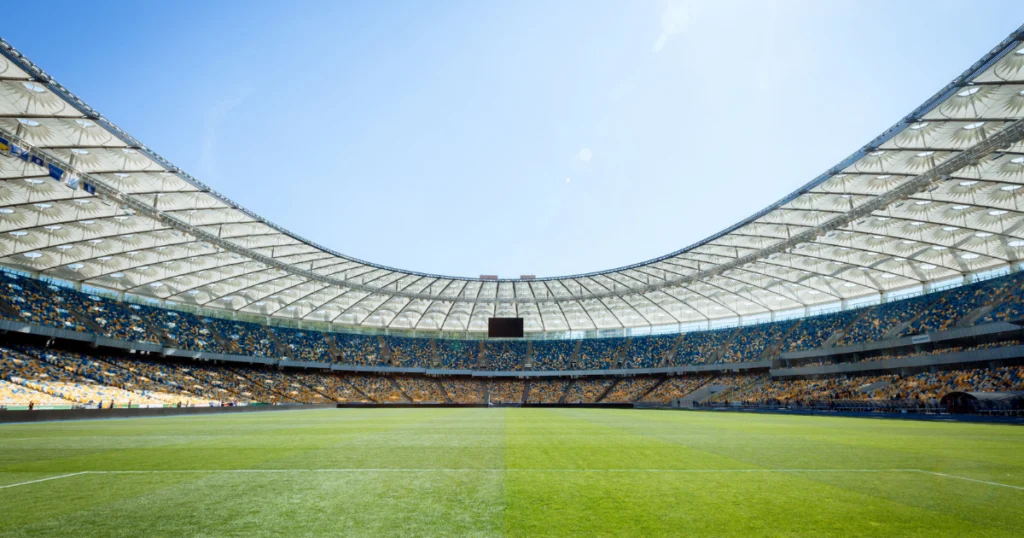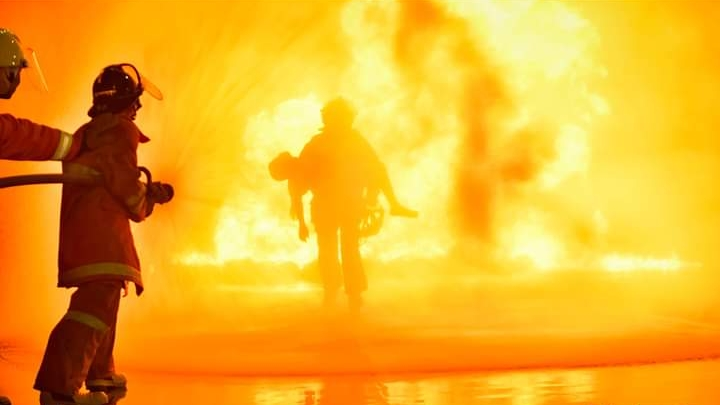This year\’s World Cup started on November 20. And the 22nd edition of the FIFA World Cup will end on December 18 with the final match of the tournament.
More than 1.2 million visitors are expected to visit Qatar during this period. In addition to these visitors from different parts of the world, various measures have been taken to ensure the safety of players, journalists and officials.
Many countries have helped Qatar internationally to ensure security during the World Cup. Security personnel from several countries including Turkey, USA, France and Pakistan have come to the country.
However, in addition to the help of security personnel, the government of Qatar has used various types of biometric technology including AI technology, drones, facial recognition cameras to identify faces.
Officials associated with this security system are hopeful that it will prevent any kind of violence, crime or terrorist activities.
Facial Recognition Camera.
Around 22,000 security cameras have been installed in and around the eight World Cup stadiums. All of these cameras are capable of recognizing anyone\’s face.
Basically this year\’s World Cup will be held in 8 venues. These cameras are installed at different ends of the stadium. The condition of the stadium is being monitored with these cameras before or after the game.
With these cameras of advanced technology, it is possible to monitor the situation of any place very precisely. An example of this would be Lucille Stadium. There is seating for 80,000 spectators, and cameras placed at different ends of the stadium zoom in on each seat.
A total of 10 matches, including the final, will be held in this stadium, the largest of the 8 World Cup stadiums.
Other stadiums are similarly being kept under surveillance.
Drones And Haya Cards.
During the World Cup, the streets of the capital Doha will always be crowded. And to keep the guests coming to Qatar safe in this crowd, the roads will be monitored by drones.
Use Of Centrally Controlled \’Connected Stadiums\’ And AI Technology.
Data is being collected through cameras as well as around 2 lakh small and large devices to ensure security during the World Cup. And AI technology is being used to effectively process this huge amount of data.
These data collected for security are working round the clock in a control center located in the capital Doha. The name of this center is \’Aspire Command and Control Center\’ and more than 100 technicians are employed here.
Some of the technicians working here were also in charge during the 2006 Asian Games held in Qatar. But now they have all advanced devices and technology. As a result, they can work more efficiently.
From cyber security to counter-terrorism operations or transport experts, experienced officers are always on duty here. Qatar\’s World Cup authorities and FIFA officials also stayed at the centre.
In this \’Aspire Command and Control Center\’ with huge screens, each employee has a separate monitor in front of them. The interior of the control center has been compared by many in the international media to NASA\’s command center. But perhaps ensuring the safety of millions of people from all over the world is as complicated as operating a spaceship.
Any entrance to the stadium can be opened or closed from this control center. Also, it can be observed from here whether the urgent needs of the visitors like water are being met in the stadium or whether the air conditioning system is working properly. These systems can even be controlled from the control center as needed.
Through this, each stadium is connected to one another. Officials can start monitoring from one stadium to another with one click. The entire system is controlled through a centralized platform powered by AI. All stadium facilities management, security, health protection and information and communication technology activities are monitored from here. The arrangement of 8 stadiums connected together is called \’Connecting Stadium\’ by Qatar World Cup authorities. According to them, this is the first time such a system has been used in a World Cup. AI can automatically alert the stadium when there is a crowd in or around it. For example, let\’s say that more than 100 people have gathered in a very small place. They may want to enter or exit the stadium. If there is a danger of such a situation, a warning message is sent to the control center through AI technology. Technicians can then monitor the situation there. And you can reduce the crowd by controlling the gate operation of the stadium. Apart from this, all the stadiums of this World Cup are air-conditioned except for one stadium. As a result, proper measures can be taken from this center only if there is discrepancy in the temperature of the stadium.
Cyber Security Is Also Being Taken Care Of.
According to Hamad Ahmed Al-Mohannadi, director of the Empire Command and Control Center, the command center operates through a centralized platform. In this way, quick action can be taken in any situation. And can work efficiently with less number of workers.
Meanwhile, since a lot of things can be controlled under a central platform, the cyber security risks of this platform are also a little higher. However, according to the authorities, this platform has been developed in such a way that it can deal with all types of cyber attacks. Al-Mohannadi said officials are constantly testing the system to ensure that no major cyber issues occur during the World Cup.
There Are More tThal 50 Personnel On The Field To Ensure Security During The World Cup.
Qatar has a total population of about 3 million, of which only 12% are native citizens of Qatar. Therefore, the country lacked its own manpower to ensure the safety of millions of people. For this reason, Qatar has signed agreements with a total of 13 countries, who will help ensure security during the World Cup.
Turkey announced before the World Cup that it would send more than 3,000 police officers to secure stadiums and hotels in Qatar. Turkey is also expected to send 100 special operations police officers, 50 bomb experts and 80 trained dogs. Turkey has also trained 677 Qatari security personnel working in 38 different professional fields ahead of the World Cup.
Again, 220 security personnel from France will be stationed in Qatar during the World Cup. And cyber security experts from Morocco will also work during the World Cup.
The UK Navy has pledged to help Qatar to ensure maritime security. The country has also provided training and advice to Qatari security personnel on a range of issues, including venue searches, operations planning, command and control.
Army personnel from Pakistan, USA and Jordan have also come to Qatar. Qatar also signed a special agreement with the US Department of Defense for technical cooperation during the tournament.
However, these security personnel from different countries will work under the direction of Qatari officials.
Qatar has trained more than 50,000 people from different countries for security work during the World Cup alone. The training was named \’Watan\’ – the Arabic word meaning \’country\’ in Bengali.


